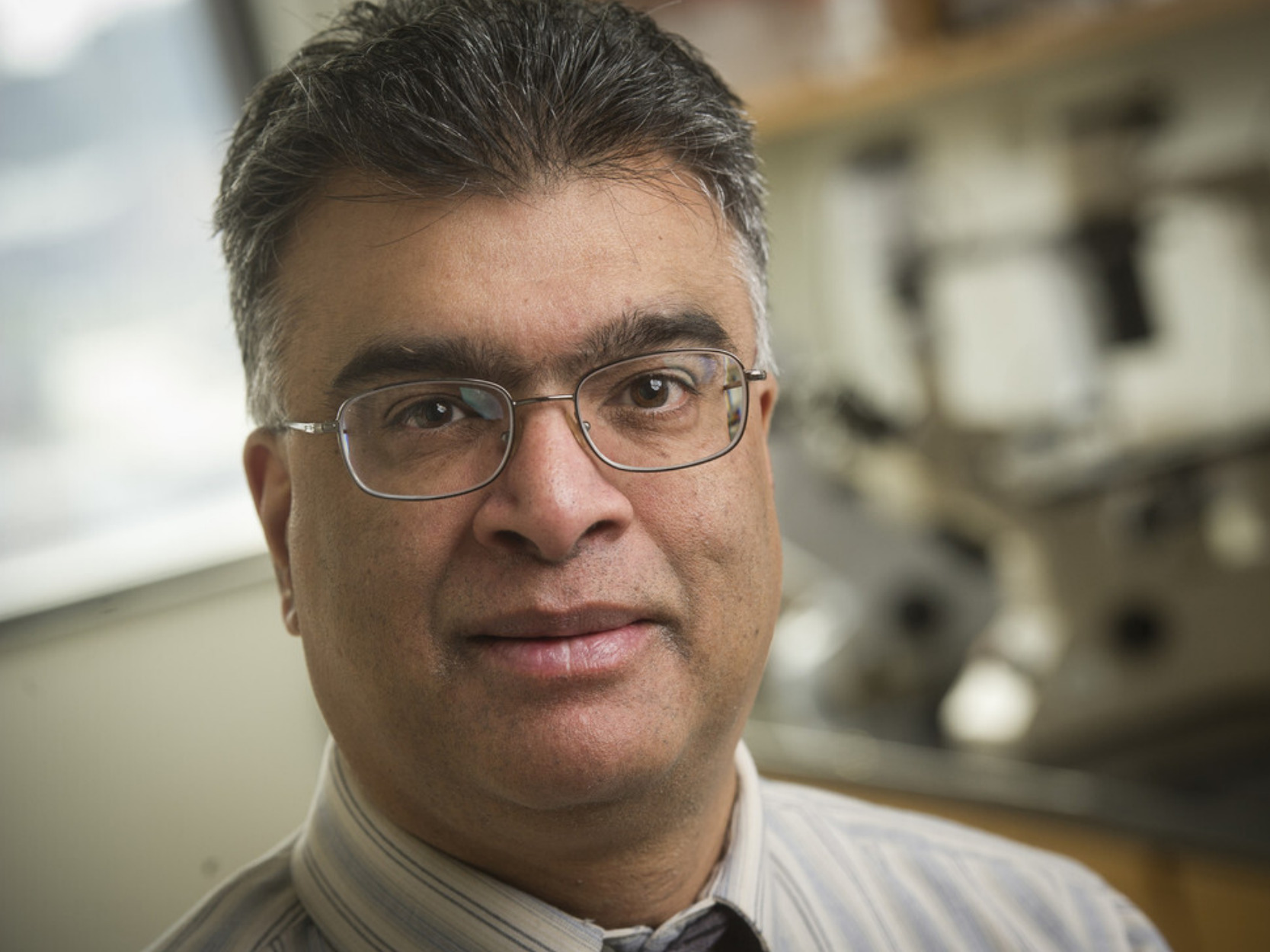
In a new series, the UAB Comprehensive Diabetes Center (UCDC), a leader in the field of diabetes research, will highlight its dynamic faculty and trainees.
The UCDC has members from across several schools and departments at UAB. Diabetes research capabilities are made stronger by the exansive research focuses and innovations that members bring to the table. To better understand these research capabilities and discoveries, we will spotlight UCDC researchers throughout the year.
This month, we are spotlighting Sasanka Ramanadham, PhD., Professor in the Department of Cell, Developmental and Integrative Biology (CDIB) and senior scientist in the Comprehensive Diabetes Center (UCDC).
Tell us a little bit about you and your role at the UCDC.
“My name is Sasanka Ramandham, and I am a senior scientist here in the Comprehensive Diabetes Center. I run a lab with several support members, from undergraduate to graduate students, as well as Ph.D. students and instructors. I see my role as a mentor and guide for the direction of our research, and everyone in my group plays an important and distinct role to make progress in our area of studies.
I have been with the UCDC for 12 years, and I have enjoyed the seminal findings generated and published by my colleagues at the center, and especially on our floor. The environment offered here is incredibly collegial and collaborative, and everyone at the Center is supportive of each others’ endeavors. I look forward to many more years of working alongside my colleagues and leading my research group.
We have wonderful leadership at the helm, and I know we will continue to be pioneers in contributing to the knowledge that will provide a greater understanding of the mechanisms that lead to diabetes development. Further, the research currently being done here is likely to generate additional and novel therapeutic avenues to counter both Types 1 and 2 diabetes.”
What first got you interested in diabetes research?
“I received my Doctor of Science in Pharmacology from Texas Tech University-Health Sciences Center 1985. It was there that I began to learn more about the prevalence of diabetes and how many Americans it affected.
During my early post-doctoral years at the University of British Columbia in Vancouver, Canada, I received an award from the Canadian Diabetes Foundation. I then was selected for a slot on an NIH Diabetes Post-Doctoral Training Grant in 1991 at Washington University School of Medicine in St. Louis, MO. Since then, I have been continuously supported by a variety of extramural organizations including the American Diabetes Association, JDRF, Iacocca Family Foundation, NIH/NIDDK, and NIH/NIAID.”
Tell us a little bit about your own research.
“My lab is very interested in lipid signaling when it comes to diabetes research. According to the CDC, approximately 1.6 million adults and children were diagnosed with Type 1 diabetes in 2020. This represents a 30 percent increase since 2017. A fundamental question is: what processes lead to beta-cell death? Our work addresses a much-neglected arm in the field, that is lipid signaling.
More specifically, lipid signaling that is derived from the very sources (immune cells and beta-cells) that participate in beta-cell death. Gaining a better understanding of such lipid signaling will offer new therapeutic avenues and significantly enhance the possibility of countering Type 1 diabetes development and/or progression. My lab recently found that lipids produced by beta-cells and immune cells (e.g., macrophages and T-cells) can have a profound impact on the survival of the beta-cells. Most recently, we received an award from JDRF to study novel interventions of lipid signaling as a means to counter Type 1 diabetes onset.”
What does support of the UCDC and its mission mean to you?
“For me, supporting the UCDC and its mission means that I get to come to work every day and know that I am contributing to finding a therapy to prevent diabetes onset. More than 14 percent of people in Alabama have diabetes, and my lab is working to support them as well as individuals around the world who are affected by diabetes. It is also important to note that we would not be able to pursue our passion without the support and camaraderie of the CDIB department.
When someone has diabetes, it is not just they who carry the burdens of the disease. There are parents, partners, siblings, and friends who are also affected. So, knowing that our work here could directly contribute to improving the lives of those affected by diabetes is an incredible feeling.”
If you or a UCDC colleague is interested in being featured, please reach out to diabetescomm@uabmc.edu.